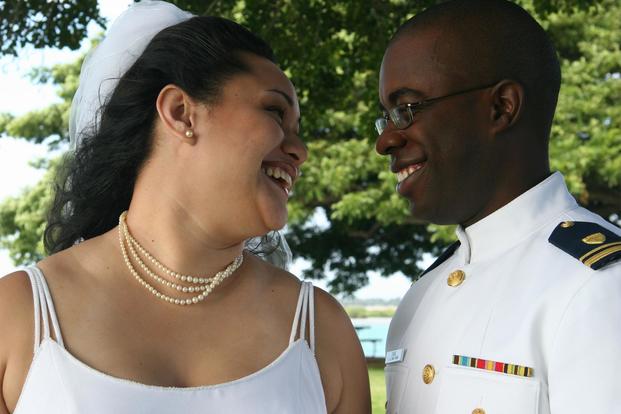The U.S. Supreme Court has signaled interest in a case that questions the validity of the Feres doctrine, the 68-year-old ruling that limits troops from suing the Defense Department.
The court on Nov. 28 ordered the U.S. solicitor general to file a response to a petition in a military medical malpractice case, Daniel v. the United States. The case was brought against the federal government after an active-duty Navy nurse, Lt. Cmdr. Rebekah "Moani" Daniel, died in 2014 following childbirth at Naval Hospital Bremerton, Washington.
The solicitor general previously had waived his right to respond -- a usual practice for the federal government in Feres cases, since the Supreme Court has not agreed to hear any cases questioning Feres since 1987. But the order from the court indicates that "at least one, or not more" of the justices has taken note of the case, said Andrew Hoyal, an attorney with the Seattle-based Luvera Law Firm, representing Rebekah Daniel's husband, Walter.
"It means they are taking it seriously. We are very interested in seeing what kind of arguments the government will make in the response," Hoyal said.
Walter Daniel, a former Coast Guard officer, initially filed a malpractice suit against the Navy hospital and doctors after his wife died four hours after giving birth to the couple's daughter Victoria on March 9, 2014. Daniel, who worked as a labor and delivery nurse at the hospital, began hemorrhaging immediately following delivery. Medications administered to stop the bleeding failed and, within two hours, she had lost a third of her body's blood volume. The suit alleges that additional lifesaving measures were administered too late and contributed to her death.
The case and subsequent appeals were dismissed based on Feres, a 1950 Supreme Court decision that prevents troops from suing the DoD for injuries incidental to military service.
Hoyal said his client decided to take the case to the Supreme Court because it involves medical malpractice and a disparity in rights for female troops. If Rebekah Daniel had been a civilian spouse at the same hospital, her family would have been allowed to sue.
"We understand the court's hesitancy to deal with military discipline issues, combat, the organizational part of the military. But there weren't any military issues, military judgments in this case. This was about medical judgments," Hoyal said.
Feres dates to a series of cases in the late 1940s that involved injuries to troops serving on active duty. The widow of Lt. Rudolph Feres sued the government after her husband died in a barracks fire caused by a defective heating system.
In crafting the rule, which also involved two other cases, the 1950 Supreme Court said the DoD already has disability compensation in place for personnel and dependents and to allow troops to sue the federal government would in effect cause civilian courts to question military orders and discipline, adding that the Federal Tort Claims Act shouldn't apply in those cases.
The last Feres case petitioned to the high court also involved childbirth and an active-duty woman: In 2009, the daughter of an Air Force captain was injured when her mother received a medication that caused a severe allergic reaction while she was in labor. The court never heard the case; the Justice Department settled it in 2016.
In opinions written before they became U.S. Supreme Court justices, Ruth Bader Ginsburg and Clarence Thomas expressed interest in reviewing Feres. Hoyal said he does not know which of the current justices requested the response from the federal government in the Daniel case.
The government response was due Dec. 28. However, the solicitor general requested an extension, and the new deadline is Jan. 28. After the response is filed, Walter Daniel's attorneys have several weeks to review and file another response. The justices will decide in conference whether to hear the case.
The DoD argues that Feres is necessary because it could cause military doctors and providers to be more cautious in their approach to treating personnel, which could affect their ability to save lives, both in military hospitals and on the battlefield.
Pentagon officials also say the department offers a robust compensation package to those who are injured in the line of duty.
More than 7,000 petitions are filed each year to the Supreme Court, with the justices accepting 75 to 80 cases. Hoyal said the request for a response means the odds of the Daniel case being accepted have increased significantly but knows it's still a long shot. Still, he believes it's time for the justices to weigh in on military medical malpractice cases that resulted in grievous injury or death.
"This is about medical decisions, not military judgments," Hoyal said.
The Supreme Court request for a government response first was reported by the Military Officers Association of America.
-- Patricia Kime can be reached at patriciankime@gmail.com. Follow her on Twitter @patriciakime.













